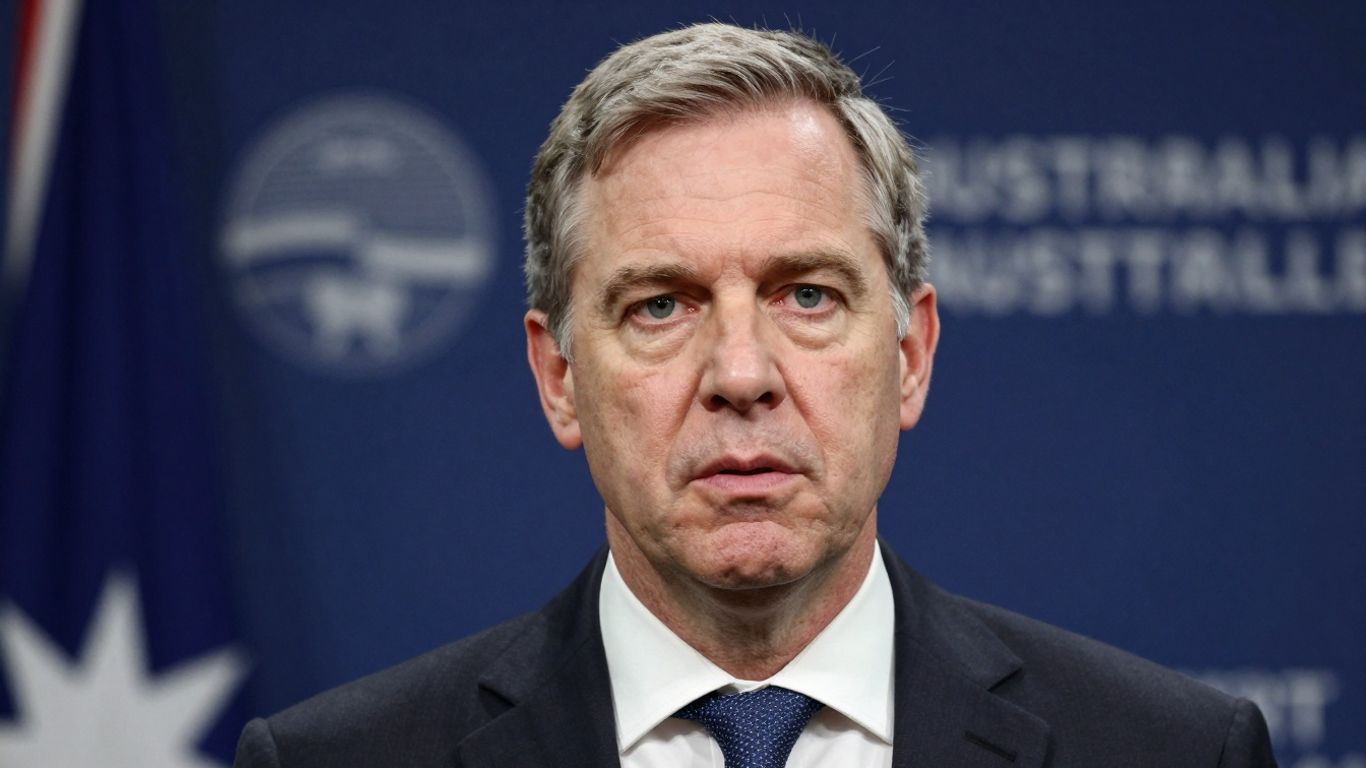Alright, so you wanna get your finances sorted, eh? Good on ya! In Australia, managing your money, like budgeting and forecasting, is super important if you wanna get ahead. It’s not about being a tight-arse, it’s about being smart with your hard-earned cash so you can actually live a bit. This guide’s gonna walk you through how to get a handle on your dough, plan for the future, and maybe even snag that dream home or a sweet retirement. Let’s get stuck in!
Key Takeaways
- Get a grip on where your money goes and where it comes from. It’s the first step to financial freedom, mate.
- Don’t just spend, plan! Setting goals and looking ahead helps you avoid those nasty financial surprises.
- Life throws curveballs, but you can be ready. Learn to adjust your money plans as things change, just like a pro.
- Avoid common money mistakes. That ‘she’ll be right’ attitude can bite you in the bum later on.
- Use technology to your advantage. There are heaps of apps and tools out there to make budgeting and forecasting a breeze.
Getting Started With Your Budgeting Journey Down Under
Alright, let’s get cracking on your budgeting journey, mate! It might seem like a drag, but trust me, getting a handle on your finances is like having a good set of tools – it sets you up for a much brighter future. We’re not talking about becoming a millionaire overnight, but about gaining control and making your money work for you. It’s about understanding where your hard-earned Aussie dollars are going and making sure they’re going where you want them to.
Understanding Your Aussie Dollar Flow
First things first, you need to know where your money’s actually going. This means tracking every single dollar coming in and going out. It might sound tedious, but it’s the foundation of any good budget. Think of it like this: you can’t fix a leaky tap if you don’t know where the leak is!
Here’s a simple way to get started:
- Grab a notebook or spreadsheet: Yep, old school works just fine. Or, if you’re a bit more tech-savvy, there are plenty of apps (more on that later).
- Track your income: This includes your salary, any side hustles, or even that fiver your nan slipped you.
- Track your expenses: Everything from rent and bills to that daily coffee and sneaky Tim Tam. Don’t forget those sneaky subscription services!
To help visualise your spending, you could create a simple table like this:
| Category | Estimated Monthly Cost | Actual Monthly Cost | Notes |
|---|---|---|---|
| Rent/Mortgage | $2000 | $2000 | |
| Groceries | $500 | $600 | Need to cut back on avo toast! |
| Transport | $200 | $250 | Petrol prices are killing me! |
| Entertainment | $300 | $400 | Too many nights at the pub! |
| Utilities | $200 | $200 | |
| Other (Coffee) | $150 | $200 |
Setting Realistic Financial Goals for a Brighter Tomorrow
Now that you know where your money’s going, it’s time to set some goals. What do you actually want to achieve with your money? These goals need to be realistic and achievable, otherwise, you’ll just get discouraged. Think about both short-term and long-term goals. Maybe you want to save for a holiday, pay off some debt, or eventually buy a house. Whatever it is, write it down! Having clear goals will help you stay motivated and on track. Consider these steps:
- Brainstorm: Jot down everything you want to achieve financially, no matter how big or small.
- Prioritise: Which goals are most important to you? Which ones will have the biggest impact on your life?
- Set a timeline: When do you want to achieve each goal? Be realistic about how long it will take.
Setting financial goals is like setting a destination for a road trip. Without a destination, you’re just driving around aimlessly. With a clear destination, you can plan your route, pack your bags, and get ready for the adventure.
Tools and Apps for Smart Budgeting
Luckily, you don’t have to do all this by hand. There are heaps of great tools and apps out there that can make budgeting a whole lot easier. Many of these apps can connect directly to your bank accounts, automatically tracking your income and expenses. This can save you a tonne of time and effort. Plus, they often provide helpful insights into your spending habits. Here are a few popular options for budgeting apps in Australia:
- Pocketbook: A free app that automatically tracks your spending and helps you create a budget.
- Raiz: An app that rounds up your purchases and invests the spare change.
- WeMoney: An app that helps you track your net worth and find better deals on financial products.
Choosing the right tool depends on your individual needs and preferences. Give a few a try and see which one works best for you. Remember, the goal is to make budgeting as easy and painless as possible. Good luck, and happy budgeting!
Mastering the Art of Forecasting Your Finances
Alright, so you’ve got a handle on budgeting, which is grouse. But what about peering into the future? That’s where forecasting comes in. It’s not about having a crystal ball, mate, but about making educated guesses so you can plan for whatever life throws your way. Think of it as budgeting’s more strategic, forward-thinking cousin. It’s about turning those dreams into numbers, as they say.
Predicting Future Expenses and Income
First things first, you need to get a handle on what’s coming in and what’s going out. Start by looking at your past bank statements and bills. What are your regular expenses? Rent, bills, groceries – the usual suspects. Then, think about your income. Is it steady, or does it fluctuate? If you’re a freelancer, for example, your income might vary a fair bit. The key is to be realistic and maybe even a little pessimistic. It’s better to overestimate expenses and underestimate income than the other way around. Consider using budgeting courses to refine your skills.
Here’s a simple way to break it down:
- Fixed Expenses: Rent/Mortgage, Loan repayments, Insurance
- Variable Expenses: Groceries, Entertainment, Fuel, Clothes
- Income: Salary/Wages, Investments, Side hustles
Scenario Planning for Life’s Surprises
Life in Australia can be pretty unpredictable. What if your car breaks down? What if you lose your job? What if you suddenly need to fly interstate for a family emergency? That’s where scenario planning comes in. Think about different possibilities and how they might impact your finances. For each scenario, work out how you’d adjust your budget. Could you cut back on entertainment? Would you need to dip into your savings? Having a plan in place will help you stay calm and make smart decisions when things go pear-shaped. It’s all about building resilient financial habits.
Adjusting Your Forecasts Like a Pro
Your initial forecast is just a starting point. As time goes on, you’ll need to adjust it based on what’s actually happening. Are you spending more than you thought on groceries? Is your income lower than expected? Don’t be afraid to tweak your forecast to reflect reality. Review your budget and forecast regularly – at least once a month – and make any necessary changes. This is where using the tax code to your advantage can really help.
Forecasting isn’t a one-off thing; it’s an ongoing process. The more you do it, the better you’ll get at predicting future financial outcomes. It’s about learning from your mistakes and refining your approach over time. Think of it as a financial fitness programme – the more you work at it, the stronger you’ll become.
Common Budgeting Blunders and How to Dodge Them
Avoiding the ‘She’ll Be Right’ Mentality
We Aussies are known for our laid-back attitude, but when it comes to budgeting, the ‘she’ll be right’ mentality can lead to trouble. Ignoring your finances and hoping for the best is a recipe for disaster. Instead of winging it, take a proactive approach. Track your spending, set realistic goals, and regularly review your budget. A little bit of planning goes a long way in securing your financial future. Don’t just assume things will work out; make them work out.
Overcoming Budget Fatigue and Staying on Track
Budgeting can feel like a chore, and it’s easy to get burnt out. To combat budget fatigue, try these tips:
- Make it enjoyable: Find ways to make budgeting less tedious. Use apps with gamified features or reward yourself for reaching milestones.
- Set realistic goals: Don’t try to overhaul your entire financial life overnight. Start small and gradually increase your savings goals.
- Automate your savings: Set up automatic transfers to your savings account to make saving effortless.
It’s important to remember that budgeting isn’t about restriction; it’s about empowerment. It’s about taking control of your money and making it work for you, not the other way around. When you feel like giving up, remind yourself of your long-term goals and the freedom that financial security can bring.
Dealing With Unexpected Costs and Financial Shocks
Life throws curveballs, and unexpected costs are inevitable. Whether it’s a car repair, a medical bill, or a broken appliance, these expenses can derail your budget. Here’s how to handle them:
- Emergency fund: Build an emergency fund to cover unexpected costs. Aim for at least 3-6 months’ worth of living expenses.
- Review insurance: Make sure you have adequate insurance coverage to protect yourself from financial shocks.
- Adjust your budget: When unexpected costs arise, adjust your budget accordingly. Cut back on non-essential expenses to free up cash. Consider using a budget calculator to help you stay on track.
| Expense | Amount |
|---|---|
| Car Repair | $500 |
| Medical Bill | $200 |
| Appliance Repair | $150 |
| Total | $850 |
Having a plan for unexpected costs can help you weather financial storms without derailing your long-term goals. Remember, it’s not about avoiding surprises altogether, but about being prepared to handle them when they arise. Don’t let unexpected expenses throw you off course; adjust your sails and keep moving forward. It’s also important to review performance against plans to make sure you are on track.
Boosting Your Savings and Investment Game
Strategies for Supercharging Your Savings
Alright, let’s yarn about how to seriously boost your savings, yeah? It’s not just about chucking your spare change in a jar anymore. We’re talking about strategies that actually make a difference.
- Automate your savings: Set up a direct debit from your everyday account to a high-interest savings account. Even if it’s just a little bit each week, it adds up over time. Think of it as paying yourself first.
- Round up your purchases: Some banks and apps let you round up your purchases to the nearest dollar and automatically transfer the difference to your savings. It’s like finding money you didn’t even know you had!
- Challenge yourself: Try a no-spend week or month. You’d be surprised how much you can save when you cut out unnecessary expenses like takeaway coffees and lunches.
It’s easy to fall into the trap of thinking you need a massive income to save effectively. The truth is, small consistent changes to your spending habits can have a huge impact on your savings over the long term. Start small, stay consistent, and watch your savings grow.
Smart Investment Choices for Aussies
So, you’ve got some savings tucked away – good on ya! Now, let’s talk about making that money work for you through smart investments. There’s a whole smorgasbord of options out there, and it can be a bit overwhelming, but don’t stress.
- Shares: Investing in shares means buying a small piece of a company. It can be risky, but also potentially rewarding. Do your research or chat with a financial advisor before diving in.
- Property: Owning property can be a great long-term investment, but it also comes with responsibilities like maintenance and dealing with tenants. Consider the true cost of short-term property investment before jumping in.
- Superannuation: Don’t forget about your super! It’s a long-term investment for your retirement. Consider making extra contributions to boost your nest egg.
Building Wealth for Long-Term Financial Freedom
Building wealth isn’t a sprint; it’s a marathon. It’s about making smart choices today that will pay off in the future. It’s about setting yourself up for long-term financial freedom, so you can live the life you want without constantly worrying about money. Compound interest is your best mate here – the earlier you start, the more your money can grow over time.
Here’s a few things to keep in mind:
- Diversify your investments: Don’t put all your eggs in one basket. Spread your money across different asset classes to reduce risk.
- Stay informed: Keep up to date with what’s happening in the financial world. Read the news, follow reputable financial blogs, and consider talking to a financial advisor.
- Be patient: Building wealth takes time. Don’t get discouraged if you don’t see results overnight. Stay the course, and you’ll get there eventually.
| Investment Type | Potential Return | Risk Level | Liquidity |
|---|---|---|---|
| Shares | High | High | High |
| Property | Medium | Medium | Low |
| Bonds | Low | Low | Medium |
Budgeting for Major Aussie Milestones
Life in Australia is full of big moments, and most of them come with a hefty price tag. From snagging your first home to kicking back in retirement, having a solid budget and forecast can make all the difference. Let’s break down how to tackle some of these major milestones without breaking the bank.
Saving for Your First Home or Investment Property
Okay, let’s be real, the Aussie property market is wild. Saving a deposit feels like climbing Everest in thongs. But it’s totally doable with a plan. First, figure out exactly how much you need. Don’t just guess! Factor in stamp duty, legal fees, and all those other sneaky costs that pop up. Then, get serious about your savings rate. Can you cut back on eating out? Maybe ditch that gym membership you never use? Every little bit counts. Consider these steps:
- Set up a dedicated high-interest savings account. Make it untouchable!
- Automate your savings. Treat it like a bill you have to pay.
- Look into government schemes like the First Home Owners Grant. Every little bit helps when you’re trying to get infrastructure funding.
Planning for Retirement in the Lucky Country
Retirement might seem ages away, but trust me, it creeps up on you faster than you think. Superannuation is your best mate here, but it’s not the whole story. Start by figuring out what kind of lifestyle you want in retirement. Do you dream of travelling the world, or pottering around in the garden? This will help you estimate how much you’ll need. Then, take a good hard look at your super. Are you contributing enough? Could you salary sacrifice a bit extra? It all adds up over time.
Don’t forget to factor in inflation! What seems like a comfortable amount now might not be enough in 20 or 30 years. Get some professional advice to make sure you’re on track.
Financing Education and Family Futures
Kids are expensive, no sugar-coating it. And education costs are only going up. Start planning early. If you’re thinking about private school, get a handle on the fees and start saving now. Even if you’re opting for public education, there are still plenty of costs to consider – uniforms, excursions, textbooks, and all those after-school activities. Consider these options:
- Set up a separate savings account specifically for education expenses.
- Look into education bonds or other investment options.
- Talk to other parents about their experiences and budgeting tips.
It’s not just about the money, though. Think about the time commitment involved in raising a family. Can you afford to take time off work? Will you need childcare? These are all important factors to consider when planning your family’s future.
The Psychology Behind Smart Money Management

Cultivating a Positive Money Mindset
Alright, let’s get real about our heads and our wallets. It’s not just about the numbers; it’s about how we feel about those numbers. A lot of us Aussies have baggage when it comes to money – maybe it’s from how we grew up, or some bad experiences we’ve had. The first step is recognising that your thoughts influence your financial behaviour.
Think about it: if you constantly tell yourself you’re no good with money, guess what? You probably won’t be. It’s a self-fulfilling prophecy. Instead, try shifting your perspective. Focus on what you can control, celebrate small wins, and start believing you can achieve your financial goals. It’s like manifesting, but with spreadsheets.
Here are some ways to cultivate a more positive money mindset:
- Practise gratitude: Acknowledge what you already have, instead of focusing on what you lack.
- Challenge negative thoughts: When you catch yourself thinking something like "I’ll never be able to afford that," reframe it to "What steps can I take to make that possible?"
- Visualise success: Imagine yourself achieving your financial goals. How does it feel? What does it look like?
Overcoming Financial Stress and Anxiety
Crikey, money worries can really get you down. Whether it’s debt, job insecurity, or just the rising cost of living, financial stress is a real issue for many of us. Ignoring it won’t make it go away; in fact, it’ll probably make it worse. So, what can you do?
Firstly, acknowledge your feelings. It’s okay to feel stressed or anxious about money. Don’t beat yourself up about it. Then, take action. Here’s a few ideas:
- Identify your triggers: What situations or thoughts make you feel most anxious about money? Once you know your triggers, you can develop strategies to manage them.
- Create a budget: Knowing where your money is going can give you a sense of control and reduce anxiety. Check out some budgeting basics to get started.
- Seek support: Talk to a trusted friend, family member, or financial advisor. Sometimes just talking about your worries can help.
- Practise self-care: When you’re feeling stressed, take time for yourself. Do something you enjoy, whether it’s going for a walk, reading a book, or having a cuppa with a mate.
Remember, you’re not alone. Many Aussies struggle with financial stress. The key is to take proactive steps to manage your anxiety and regain control of your finances.
Building Resilient Financial Habits
Building good financial habits is like building a house – it takes time, effort, and a solid foundation. It’s not about being perfect; it’s about being consistent. Small, sustainable changes are more effective than drastic, short-lived ones.
Here’s a few habits to get you started:
- Pay yourself first: Before you pay any bills or spend any money, put some aside for savings or investments. Even a small amount can make a big difference over time.
- Track your spending: Knowing where your money is going is essential for making informed financial decisions. Use a budgeting app, a spreadsheet, or even just a notebook to track your expenses.
- Automate your savings: Set up automatic transfers from your checking account to your savings account. This way, you don’t have to think about it – your savings will grow automatically.
And remember, it’s okay to slip up sometimes. We all make mistakes. The important thing is to learn from them and get back on track. Building resilient financial habits is a marathon, not a sprint. Just keep chipping away, and you’ll get there in the end.
Leveraging Technology for Seamless Budgeting and Forecasting

Technology’s made managing your money a whole lot easier, hasn’t it? Gone are the days of scribbling in notebooks and hoping for the best. Now, we’ve got apps and software that can practically do the budgeting for us. Let’s have a look at how you can use tech to get your finances sorted, mate.
Exploring the Best Financial Software
There’s a stack of financial software out there, all promising to be the best thing since sliced bread. But which ones are actually worth your time? It really depends on what you’re after. Some are great for simple budgeting, while others offer more advanced features like investment tracking and forecasting. Finding the right fit is key.
Here’s a quick rundown of some popular options:
- Beem It: Good for splitting bills and quick transfers.
- Frollo: Aggregates all your accounts in one place.
- Goodbudget: Envelope budgeting system for careful spenders.
Choosing the right software is like picking the right tool for a job. Do your research, read reviews, and maybe even try a few free trials before committing. You want something that fits your lifestyle and helps you achieve your financial goals.
Automating Your Savings and Bill Payments
One of the best things about technology is the ability to automate stuff. Set up automatic transfers to your savings account each payday, and you’ll be surprised how quickly it adds up. You can also automate bill payments, so you never miss a deadline and cop those late fees. Most banks let you set up recurring payments easily through their online banking platforms. It’s a real set-and-forget solution.
Here’s how to automate your savings:
- Calculate how much you want to save each month.
- Set up a recurring transfer from your checking to your savings account.
- Choose a date that aligns with your payday.
Data-Driven Insights for Better Financial Decisions
Financial software isn’t just about tracking your spending; it’s about understanding it. These programmes can generate reports and insights that show you where your money’s going. Are you spending too much on takeaway coffees? Are there areas where you can cut back? The data doesn’t lie. Use these insights to make smarter financial decisions and adjust your budget accordingly. This kind of financial software can really help you get a handle on your money.
| Category | Average Monthly Spend | Potential Savings |
|---|---|---|
| Eating Out | $400 | $100 |
| Entertainment | $250 | $50 |
| Unnecessary Items | $150 | $75 |
Wrapping It Up: Your Money, Your Future
So, there you have it. Budgeting and forecasting might sound a bit dry, but honestly, it’s just about getting a handle on your cash. It’s not about cutting out every little treat, but more about knowing where your money goes and making it work for you. Think of it as setting yourself up for a better run at things, whether that’s buying a house, going on a big trip, or just feeling less stressed about bills. Give it a go, even if it’s just small steps. You’ll probably be surprised how much of a difference it makes to your peace of mind, and your wallet, down the track.
Frequently Asked Questions
Why is budgeting a big deal for us Aussies?
Budgeting is super important because it helps you see where your money goes. It’s like having a map for your cash, so you can make smart choices about spending and saving. This helps you reach your financial goals, whether it’s buying a house or going on a holiday.
What’s the go with ‘forecasting’ my money?
Forecasting means guessing what your money situation will look like in the future. It’s like trying to predict the weather for your finances. This helps you plan for big costs, save up for what you want, and avoid nasty surprises.
Are there any cool apps or tools to help me with my budget?
There are heaps of great apps and tools out there! Some popular ones include Pocketbook, which links to your bank accounts, and Excel spreadsheets if you like to keep things simple. Find one that clicks with you and makes tracking your money easy peasy.
What does ‘avoiding the ‘she’ll be right’ mentality’ mean for my cash?
The ‘she’ll be right’ attitude can be a bit of a trap when it comes to money. It means not really planning and just hoping things work out. While a bit of optimism is good, with money, it’s better to have a clear plan so you don’t get caught out.
How can I make my savings grow faster, mate?
To keep your savings growing, try setting up automatic transfers from your pay into a separate savings account. Also, look for ways to cut down on small, everyday expenses – those little bits add up over time!
What’s a ‘positive money mindset’ and why is it important?
A positive money mindset means thinking good thoughts about your money and believing you can handle it. It’s about feeling in control and confident, which helps you make better decisions and stick to your financial plans.





